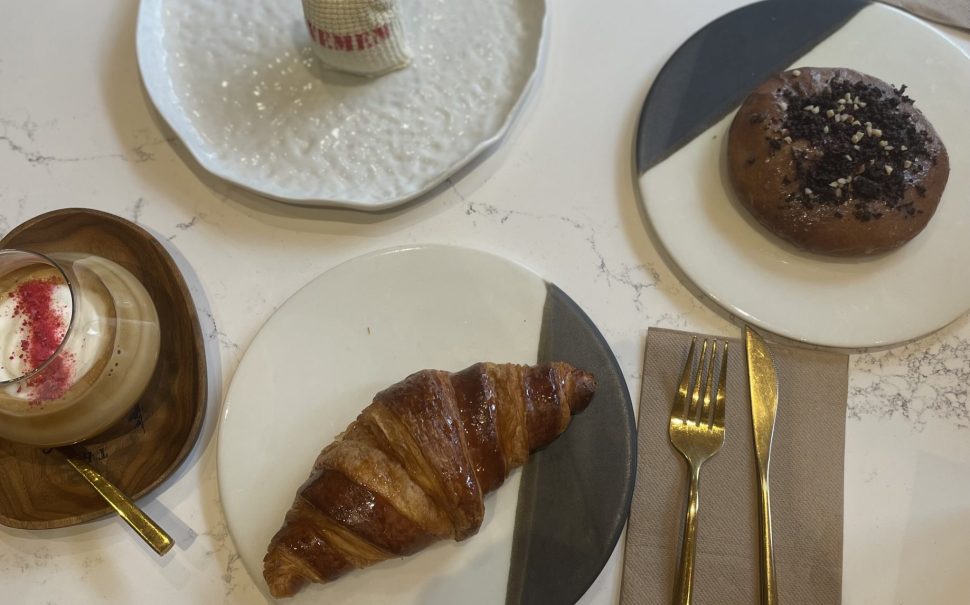When I first came across Qima Café on TikTok, I was drawn to its unique style of serving authentic coffee and pastries.
Known for its concept for giving back to the Yemeni farmers by donating one coffee tree to a farmer for every cup of coffee sold, I knew I had to try it.
Qima Café took London by storm in October, serving speciality coffee roasted in store, desserts and pastries.
The high-end Yemeni-owned café is situated in the heart of Fitzrovia, a minute walk away from Warren Street Station.
As I walked into the cafe with my children, we were instantly greeted by the cheerful staff, ready to guide us through the unique menu.
My children made a beeline for the pastries on display, I on the other hand was distracted by the slick interior.
Pictures of Yemeni farmers are displayed around the café, matching the philosophy of tree-to-cup coffee meaning the specialised coffee is sourced directly from farmers in Yemen, Colombia and Ecuador.
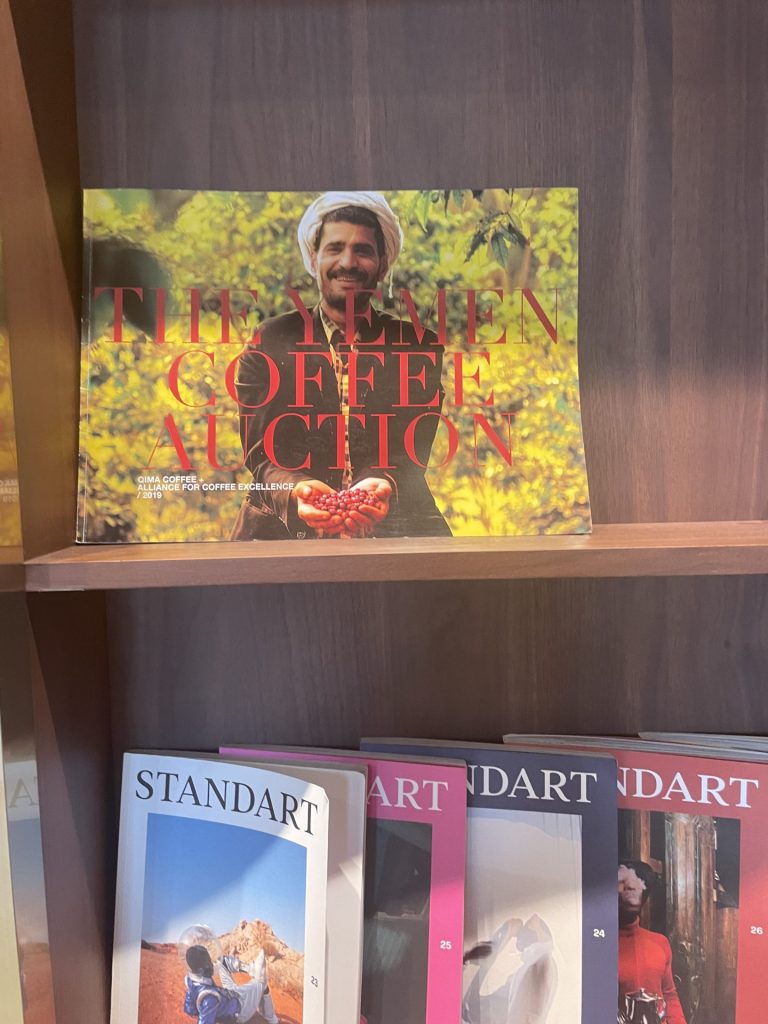
This charitable cafe invests 10% of its profits into projects for farmers and focuses on sustainability, gender equality and performance for the farmers.
The earthy interior felt warm yet luxurious, with a nature inspired touch, a place perfect for those escaping the busy London lifestyle.
I was fascinated by the oversized screen showcasing a digital menu, an innovative design allowing customers to see a step-by-step guide of how each item is made, something I’ve not seen before.
I was faced with a wall display menu of a selection of speciality coffee and tea, all uniquely named with a rich history attached to it.
As my children paused to figure out what they were ordering, I had one question on my mind.
I ask about the famous Yemeni tea, also known as Shahee Adeni: a tea blend heavily infused with cardamom and cloves, a tea I grew up drinking.
To my disappointment Yemeni tea was yet to make it on the menu.
Nevertheless, the barista recommended the ruby latte, which consisted of a rich and velvety mix of coconut and maple infused with a burst of espresso and topped with a sprinkle of tangy dried raspberries.
The marbled round table and the modern elegant décor set the scene for a perfect place to work or meet friends.
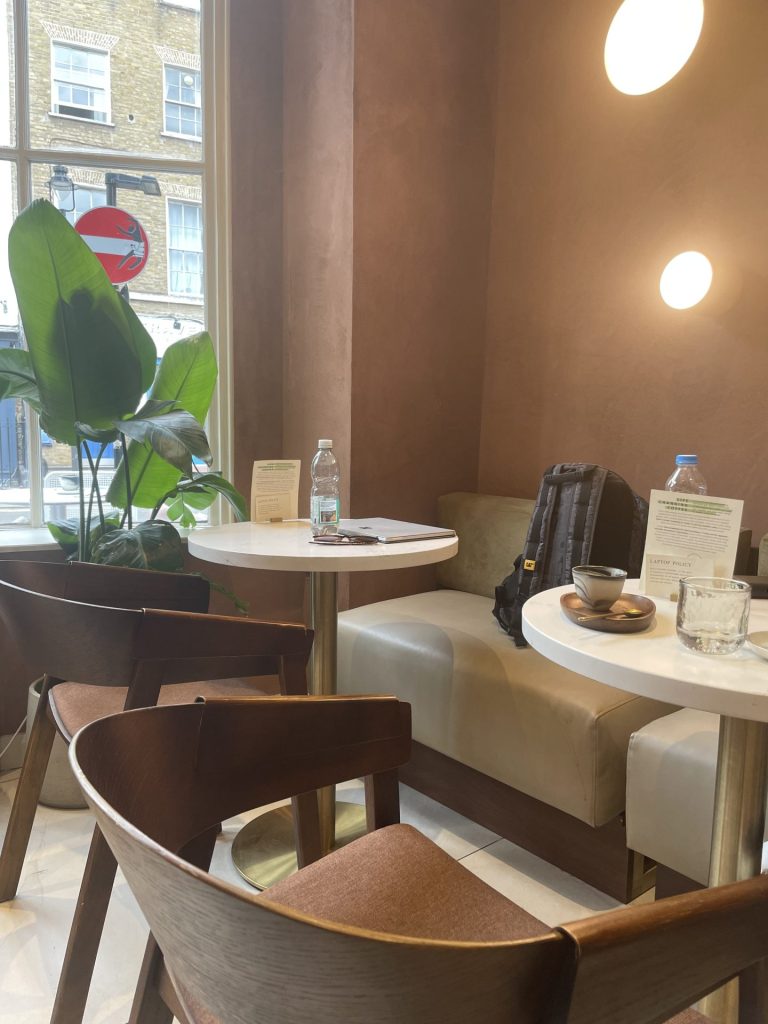
But this particular day was an after-school treat lined up for my children to celebrate the end of school year.
Silence filled the table as my children dived into their desserts, briefly exchanging words of approval in between each mouthful.
The first from our delectable desserts to arrive was the Yemeni Honey Jute Bag, a cake layered with light almond crunchy pistachio sponge, floral citrusy jelly made with Sidr honey (Yemeni honey) and fresh clementine’s, creamed with opal white chocolate and Madagascar vanilla mouse.
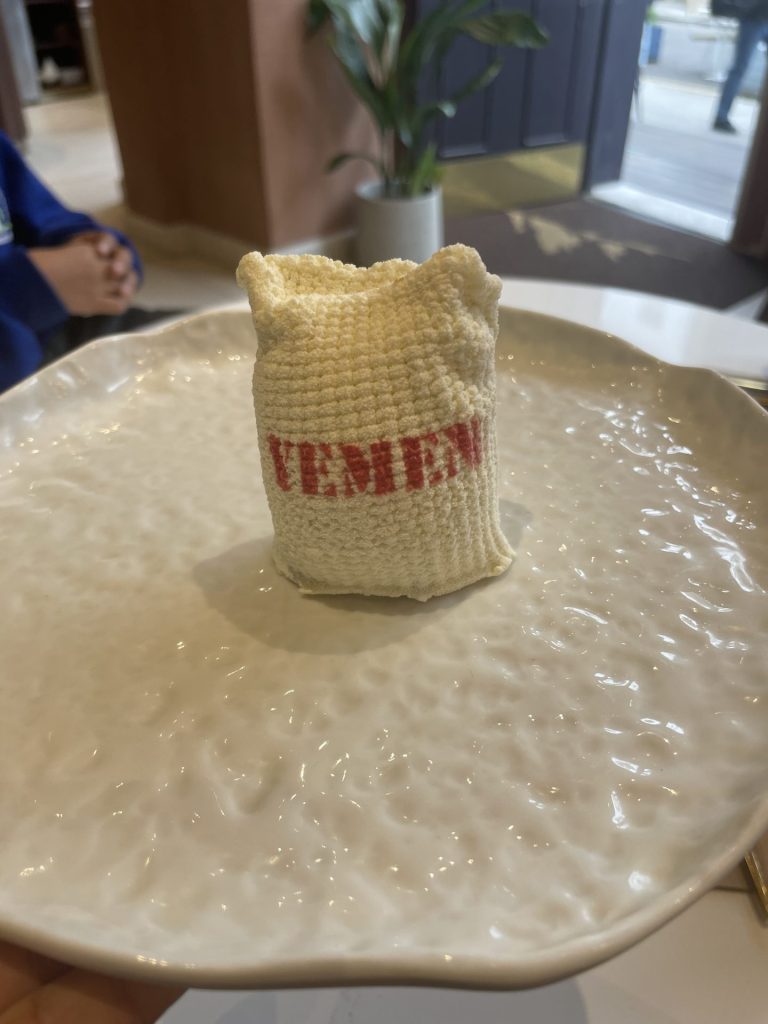
This creamy dessert went down a treat after being devoured by my son within minutes, sealing his approval.
Next up was the Gianduju Kuchen- a chocolate and hazelnut butter bread, glazed with sweetened cream, topped with toasted hazelnuts and chocolate crumble.
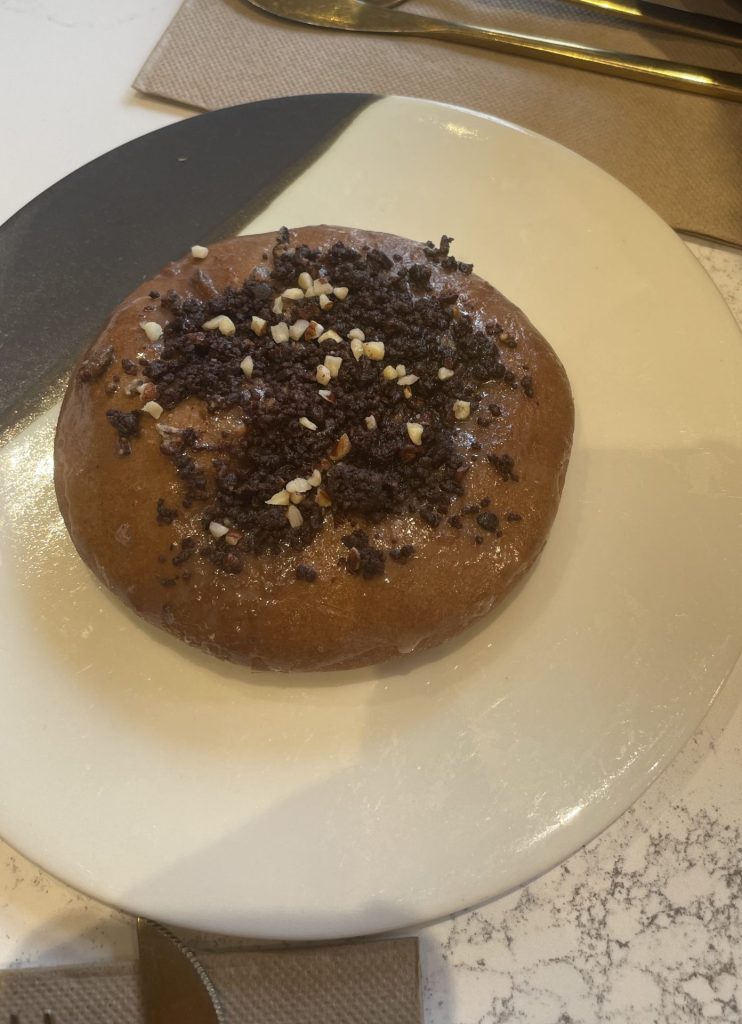
This hearty chocolate bread felt surprisingly light and airy and, although I would have preferred it warm, it did not disappoint.
Lastly, I sampled the Yemeni honey glazed croissant- baked in-house. This buttery and flakey pastry complimented the rich and strong flavours of my espresso-based latte.
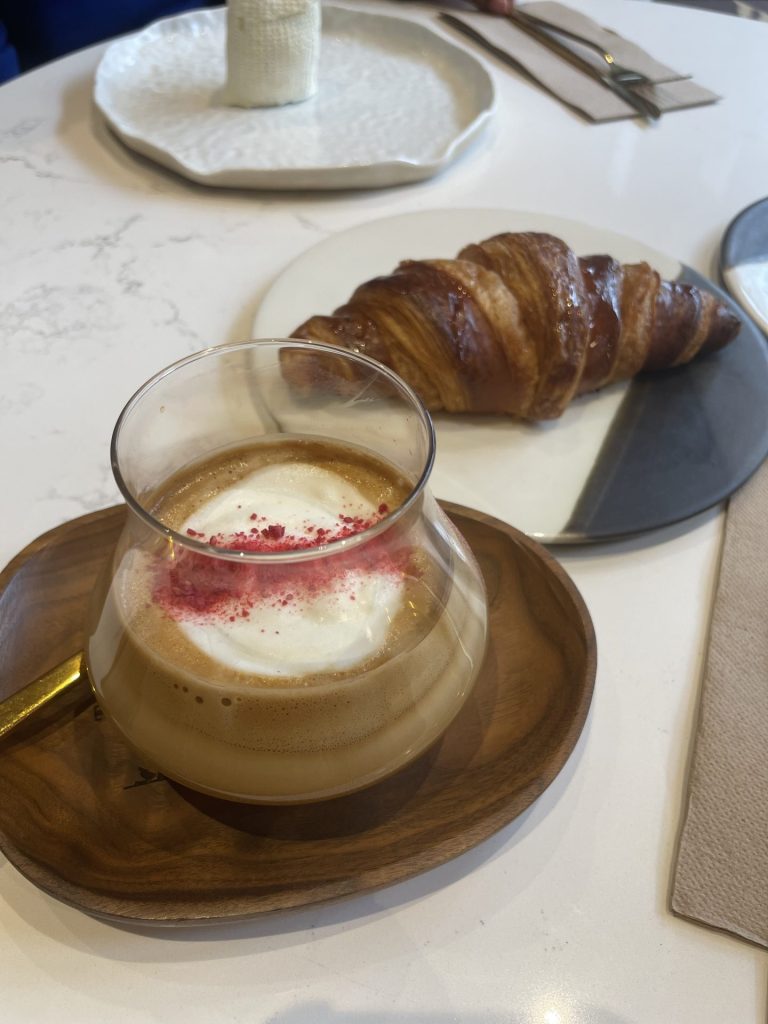
I had the pleasure of speaking with Ibrahim Thabet, the manager of Qima Café.
Much to my surprise he greeted me in Arabic with the word ‘Salam’, meaning peace, which is a common way to say hello in the Arab regions of the world.
Ibrahim’s friendly nature and positive energy is felt around the café and immediately made us feel welcome.
The people of Yemen are renowned for their welcoming hospitality and as we discuss all things coffee, it’s clear to see why the national hot beverage was the common factor for building strong communities.
Ibrahim said: “We’ve had really good engagement from people since opening the café.
“Yemen was very famous for its coffee and we’ve seen many countries around the world looking for Yemeni coffee.”
He told me that the café started initially as Qima foundation, an idea introduced to be a vehicle for farmers to introduce their coffees to the world.
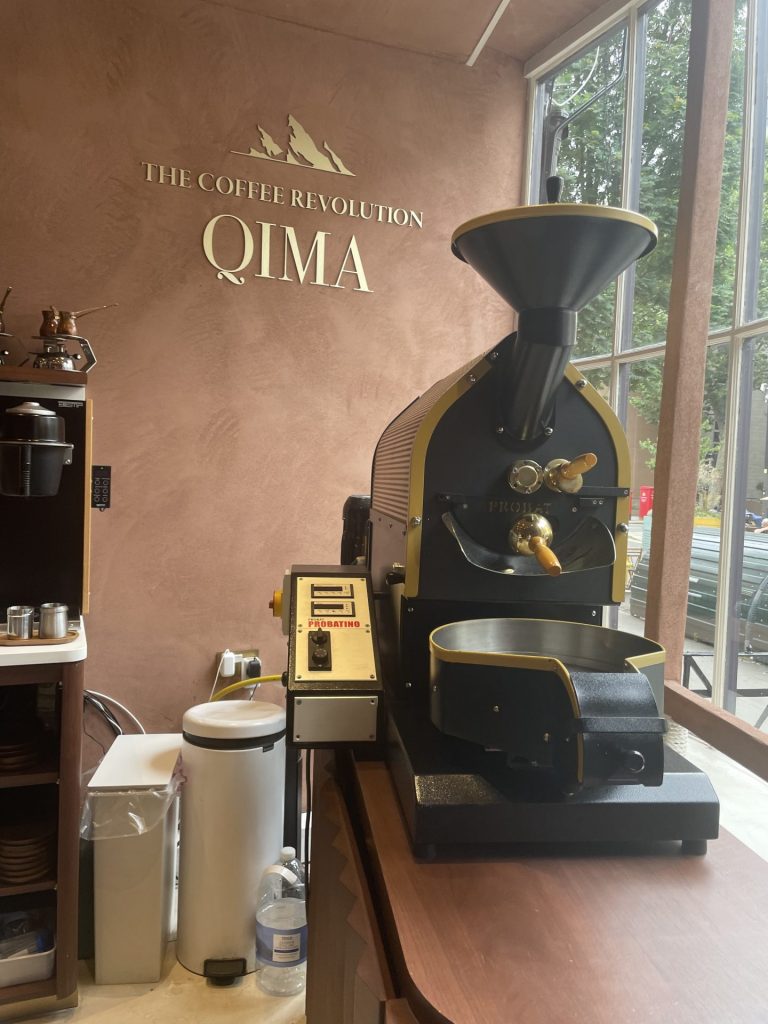
Ibrahim explained that farmers grow their coffee which is then sold as wholesale to over 40 countries worldwide.
He said: “We are inspired and touched by what farmers do, they are the core essentials for the country.”
He added that the fundamental idea of the café was matching a specific coffee with the right pastry.
As I took another bite into my honey glazed croissant, the flavour match was evident. The strong burst of flavours from the latte was balanced by the sweet and buttery flavours of the croissant.
The TikTok hype was definitely worth it, I highly recommend Qima cafe.
If you are looking to experience a blend of culture and coffee, check out this authentic café in Warren Street.
